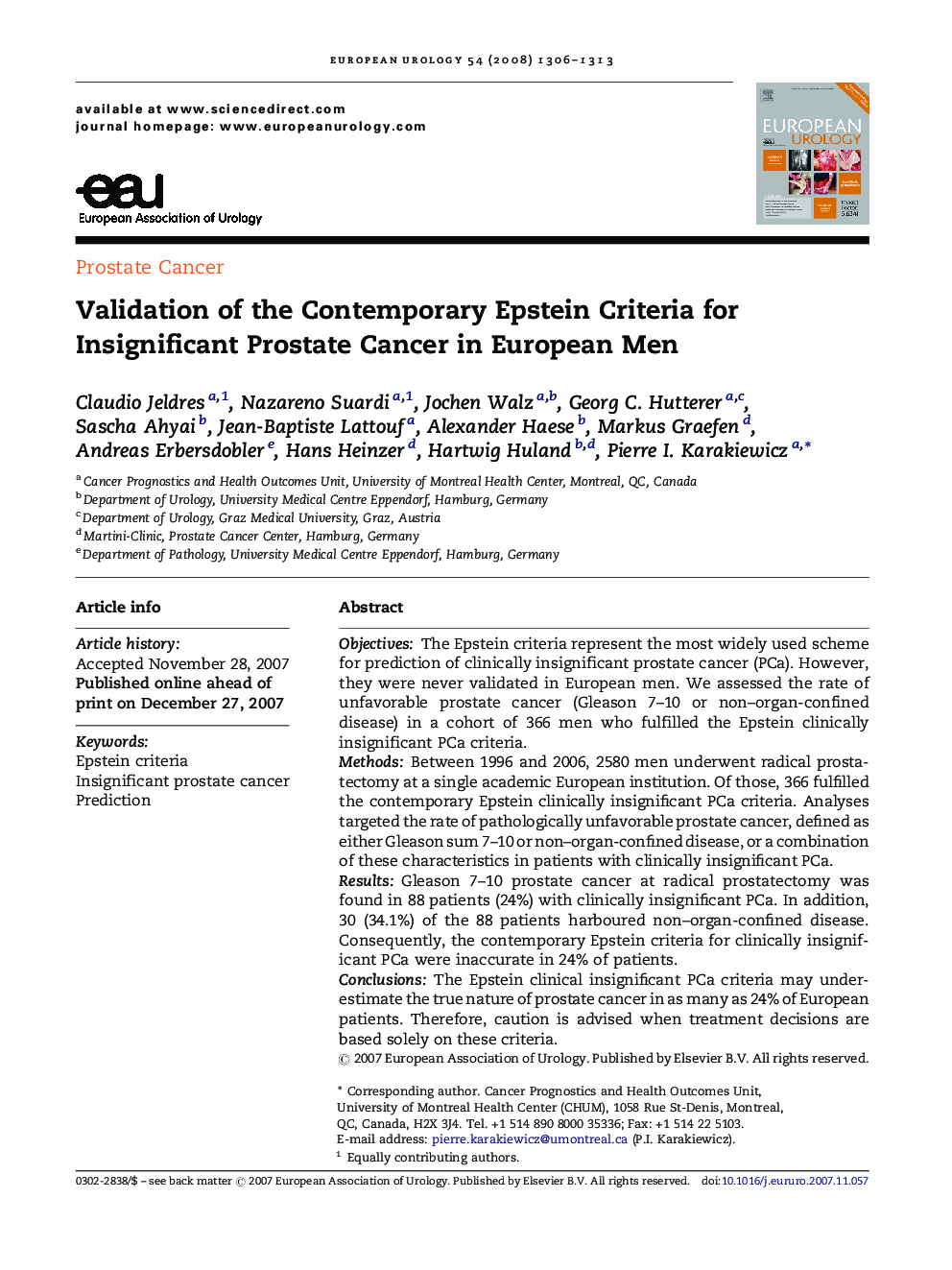| Article ID | Journal | Published Year | Pages | File Type |
|---|---|---|---|---|
| 3928735 | European Urology | 2008 | 8 Pages |
ObjectivesThe Epstein criteria represent the most widely used scheme for prediction of clinically insignificant prostate cancer (PCa). However, they were never validated in European men. We assessed the rate of unfavorable prostate cancer (Gleason 7–10 or non–organ-confined disease) in a cohort of 366 men who fulfilled the Epstein clinically insignificant PCa criteria.MethodsBetween 1996 and 2006, 2580 men underwent radical prostatectomy at a single academic European institution. Of those, 366 fulfilled the contemporary Epstein clinically insignificant PCa criteria. Analyses targeted the rate of pathologically unfavorable prostate cancer, defined as either Gleason sum 7–10 or non–organ-confined disease, or a combination of these characteristics in patients with clinically insignificant PCa.ResultsGleason 7–10 prostate cancer at radical prostatectomy was found in 88 patients (24%) with clinically insignificant PCa. In addition, 30 (34.1%) of the 88 patients harboured non–organ-confined disease. Consequently, the contemporary Epstein criteria for clinically insignificant PCa were inaccurate in 24% of patients.ConclusionsThe Epstein clinical insignificant PCa criteria may underestimate the true nature of prostate cancer in as many as 24% of European patients. Therefore, caution is advised when treatment decisions are based solely on these criteria.
